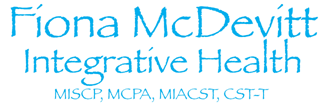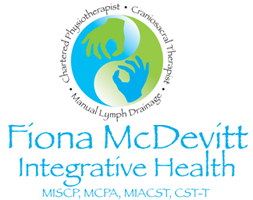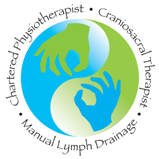
A Therapist's Perspective
The Importance of Being Extra Safe As Therapists While Remaining Compassionate for Our Patients

Coronavirus (COVID-19) and influenza are upon us. People most adversely affected by COVID-19 are the elderly and those with pre-existing conditions. Those are some of the folks that come to us so we have extra responsibility to prevent contagion.
This is why the following is important. Touch therapy practitioners have one of the highest risks of contracting or spreading microorganisms that cause disease in society as we frequently work with hands directly on the skin.
Respiratory disease is airborne and transmitted by micro water particles that can be broadcast by a sneeze or cough, 3 to 6 feet. Molecules can linger on the face or in the hair if you or your client covers the mouth with the hand as one sneezes. It then is in the hand and the air. Then the patient lies down and the therapist does cranial work to the head. The therapist now has the germs on their hands and touches a door knob or scratches their own nose or touches their own face and goes on to touch someone else. Most of the time we are in session if we touch our face or hair, we are actually the transmitter of pathogens to ourselves or others. Molecules can linger on a door knob, arm of a chair, side of a treatment table, waiting room countertop, water cooler button, the pen the client uses to write a check or the one we use to do notes.
Massage therapists, PTs, OTs, Visceral Mobilization, lymphatic work, craniosacral work includes lots of skin-on-skin touch techniques. In the age of COVID-19 and the influenza season here are some precautions:
- Reschedule or refer to doctor a client who presents with fever, persistent cough, sinus drainage or other obvious signs of communicable infection. When scheduling new patients, ask how they are feeling, refer if appropriate, (sick).
- Wash your hands (lots) before and after each patient/client, meals, bathroom breaks before using office computer or devices. Hand-washings are scrubs, front and back of hands, around finger nails and past the middle of the forearm. Wash hands first thing coming to work, last thing leaving work.
- Wear shirts so you can wash (scrub) to the mid forearm before and after sessions. Change tops daily.
- Once in session do not touch your own face, eyes, ears, hair or clothing.
- Use masks if coughing begins for you or your client. Masks help keep germs in and other germs out. Use gloves as needed for all mouth work, with infants, and any time when deemed appropriate (skin lesions, rashes, hygiene issues, questionable illness assessments). Never reuse gloves. Don't put used gloves in your pocket. Remove gloves inside out, and throw away immediately.
- In session, move away from a pending cough or sneeze if you can. Encourage the client to turn toward their elbow if possible. AND REMEMBER; you can stop a session if coughing ensues or if either you or your client become uncomfortable or have concern.
- Use single-use washable linens, pillow cases and towel covers for plinths, treatment tables, massage chairs and especially head and face cradles.
- Alcohol or sanitizer wipe tables, chair arms, door knobs, head rests, face cradles as well as hand-held exercise equipment, weights, canes, crutches and walkers. Wipe your cell phone with a baby wipe at least three times a day. Also wipe your file draw handles, counter tops, stapler, land phone (if you still have one) and the pen you use to do notes. Also periodically do bathroom door, railings, sink and toilet handles. Keep clean any surface in your clinic where hands go.
- Have everyone in your home use a wipe on their hands before they come in. Wash clothes often. Give the kids a small hand sanitizer for school and drill them in how to use it. Keep anyone who is sick at home. Contact doctor if conditions worsen, especially if fever, headache and breathing difficulties increase to concern levels.
- Use hand sanitizer lotion with grocery carts, public handles, gas pumps, card swipe buttons, open doors with your elbow when possible. Use less cash.
Finally, remain compassionate. Don't avoid touch, but do it in a way that is kind and caring, safe and healing, while ethically reducing the chance of spreading communicable disease to you, your patients or your community. In a society where touch is often inhibited we must continue our caring touch, but in public we must be extra safe in times of community infections.
With gratitude to
Don Ash, PT, CSTA-CP of CST Alliance, New Hampshire, USA

